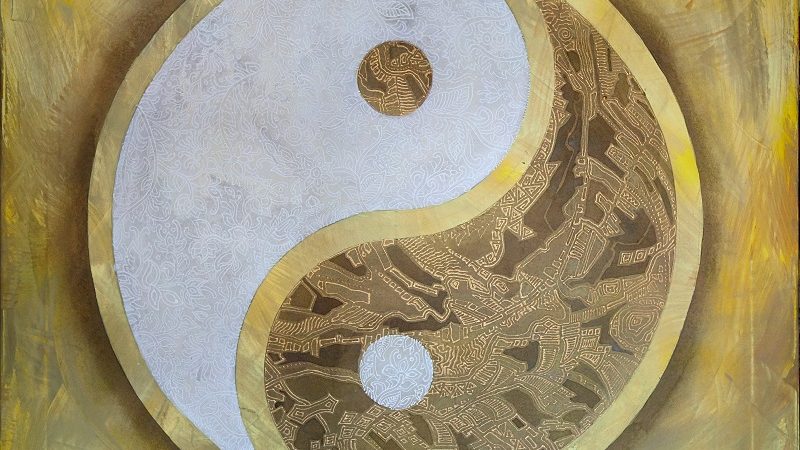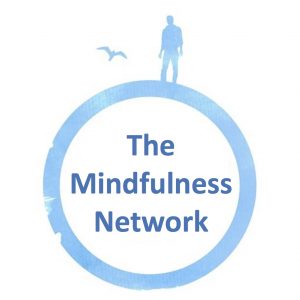
“If we merge mercy with might, and might with right, then love becomes our legacy and change our children’s birthright” – Amanda Gorman, US National Youth poet Laureate
We often think of compassion as tender, soft and comforting, but that’s only one side of a caring response to suffering. On the Mindful Self-Compassion (MSC) programme, and particularly in the work of Kristin Neff (co-developer with Chris Germer of MSC) there is increasing emphasis on the fact that compassion expresses itself in different ways. Within the framework of the three core components of MSC – mindfulness, common humanity and self-kindness – we talk about ‘yin’ tender compassion and ‘yang’ fierce compassion. Like in the Chinese symbol of yin/yang both need to be in balance. For most of us this means adjusting our caring, to stop our compassion becoming either too much like complacent acceptance or conversely, too aggressive. You might consider as you read on what’s the balance in your own life of ‘yin’ (care that validates, connects and comforts) and ‘yang’ (care that motivates, provides and protects). What active response comes most naturally to you when you meet suffering, struggle or difficulty?
Firstly, let’s consider some of the ways fierce compassion might show up in response to others. If someone was attacking a dear friend, how would you react? Perhaps you’d raise your voice, you might even put your body in the way, you might say ‘stop, no, enough!’ This protective care like the anti-war slogan says ‘not in my name’. Or if someone you cared about was feeling unfulfilled but frightened about having a difficult conversation to address it, you might support them risking disapproval and finding ways to express themselves clearly and authentically, based on what really matters to them. If a friend was trying to tackle a serious health issue by changing a habit and they expressed feeling disappointed by their efforts you might say something to motivate them like ‘I really believe you can do this, keep going’. In each instance what ignites the compassion is the recognition of a need, and the willingness to respond with action, rather than simply comforting or soothing. It’s compassion as a caring force that understands when change is not just desirable, but necessary and possible.
Now imagine validating your own needs and being a good friend to yourself in similar circumstances. What if you could become your own brave ally, encouraging yourself with words, tone, gestures and actions? When our fierce self-compassion is out of balance we tend to struggle with holding boundaries and asserting our needs. We neglect our own real or metaphorical cupboard while stocking up someone else’s. We stay silent when we see something is not ok, perhaps for fear of ‘causing a fuss’ or being disapproved of. We neglect what really matters to us. We don’t speak our truth. Self-compassion at such times means we no longer abandon ourselves and are better protected against the risks of, for example, activist exhaustion, carer burn out, or continually exposing ourselves to harm in relationships.
What are the factors that keep these different expressions of compassion out of balance for you? There are social and cultural norms associated with for e.g. gender, ethnicity, class, physical ability, education, age that all play a part, as well as the influence of our own particular family cultures and experience. If we are already marginalised the risk is much higher in validating our needs and speaking/acting with fierceness. These dangers are real and it’s vital that we connect against injustice, empowering those of us who are silenced. We need each other for this work and we are stronger together. The Black Lives Matter, Me Too and XR movements are the contemporary expressions of communal fierce compassion, shouting the uncomfortable truths that need to be heard.
Each of us has our own particular work to do balancing yin and yang. I’ve always had a pretty fierce streak. Partly nature and partly being the older sister coping with a lot of change, movement and unpredictability as a child. Anger was a way to feel safe and protect myself and those I loved. As we often do I turned that anger on myself, using self-criticism as another safety behaviour. These days, MSC practice helps me balance this ‘yang’ with tender ‘yin’, to recognise and gently soothe the unmet needs beneath the turbulent threat-defend reactivity. It takes a good dose of ‘yang’ courage and steadfastness to honour my own needs because there’s vulnerability there, which frees me to act for my own, and others’, safety and fulfilment more skilfully and creatively. It’s a virtuous cycle. Each time I touch the pain and find the courage in my heart I am reminded I can hold myself more lovingly whilst continuing to engage, with a little more care for my limits all the while. I’ve learnt to recognise more clearly when anger is constructive, and when it’s destructive. It’s kind of a paradox but practice means growing the strength to be gentle, and the fierceness to be compassionate.
In the context of local and global crisis it seems more important than ever to cultivate a bit more caring force. Which really means growing a lot more love. A love that resources us from the inside to take action in the ways we need to – for ourselves, our loved ones, our community, our world. Kristin Neff in her book ‘Fierce Self-Compassion’ encourages us:
“Our power to change the world is stronger than we might think, so long as we always remember to develop and integrate fierce and tender compassion – the two faces of love” – Kristin Neff
If you’re curious to learn more about how to connect with your inner brave compassionate friend using meditations, contemplations and exercises do join Colette and me for our donation-event workshop:
Fierce Self-Compassion – Cultivating brave, empowered clarity
When: 12 May 2022, 7-8.30pm (UK Time)
Where: Online Event
Tutors: Colette Power, Zoe Shobbrook-Fisher
Register: https://booking.mindfulness-network.org/course-information/?id=894
We welcome all donations and encourage you to consider a contribution, large or small, which will make a big difference in helping us widen access to mindfulness-based approaches.
You can view and book all of our Compassion courses and retreats via the Mindfulness Network CALENDAR.
 Written by Zoe Shobbrook-Fisher
Written by Zoe Shobbrook-Fisher
April 2022
Zoe offers mindfulness-based supervision through the Mindfulness Network and is a mindfulness and self-compassion teacher based in southwest London and Surrey.





2 comments on “Fierce Compassion – the other love that can change the world”
Sarah Dore
May 6, 2022 at 11:23 amThat was a really powerful blog, and so well written thank you very much.
zoe shobbrook-fisher
October 14, 2022 at 10:37 amthank you Sarah, I’m glad you found it powerful – may you be empowered to protect, provide and motivate yourself with kindness 🙂 warmly Zoe